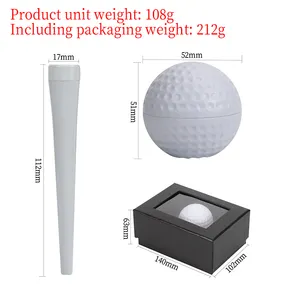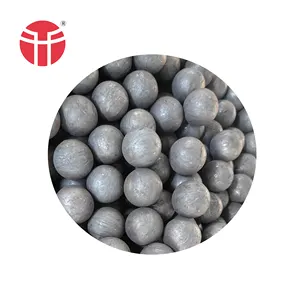
Erliao White Ceramic Coat Zinc Ball Herb Grinder With Metal Storage Tube Ball Mill Grinder Smoking Accessories

20-150mm High Hardness Low Crushing Rate Forging Grinding Steel Ball Chrome Alloy Casting Ball For Ball Mill








Ball mill balls are integral components of the grinding and milling processes involved in industrial and scientific settings. These spherical elements are pivotal in the mechanical breakdown and size reduction of materials within a ball mill, a device that is crucial for the blending and grinding of substances for a variety of applications.
The diversity of ball mill balls is evident in their various materials and sizes, tailored to different grinding and milling needs. Steel balls for ball mill use are prevalent due to their robust nature and consistent performance. On the other hand, alumina grinding balls are sought after for their non-contaminating characteristics, often used in the ceramics industries. For specialized scientific tasks, laboratory ball mill settings may utilize materials designed for precision and minimal interference.
The scope of applications for ball mill balls spans across sectors. In the construction industry, cement ball mill systems rely on these balls to grind limestone, clinker, and other components to fine powders for cement production. The pharmaceutical field employs high energy ball milling to prepare finely powdered medicinal compounds. Furthermore, the mining sector utilizes these balls for ore extraction and processing.
Performance capacities of ball mill balls vary, with each type designed to meet specific grinding requirements. Innovations in ball nose end mills and ball end mills have led to increased efficiency in contouring and smooth surface processing. Planetary ball mill systems, on the other hand, are known for their ability to achieve extreme fineness and high-energy mixing, which are essential in research and development environments.
Choosing the right type of ball mill balls can significantly enhance the milling process. Factors such as size, material, and hardness of the balls can influence the final particle size, shape, and texture of the milled product. For instance, ceramic ball mill systems often use balls that minimize contamination to maintain the purity of the milled compounds.
Prospective buyers on Alibaba.com should consider the specific requirements of their milling operations before selecting ball mill balls. Factors such as the physical properties of the material being milled, the desired particle size distribution, and the milling duration are crucial in determining the most appropriate ball type. Alibaba.com hosts a vast array of options, facilitating the connection between buyers and suppliers to ensure the procurement of the most suitable milling media for their industrial or laboratory scale operations.